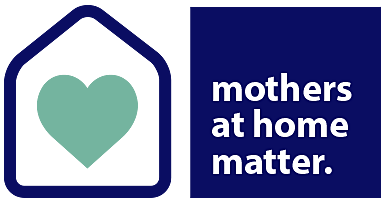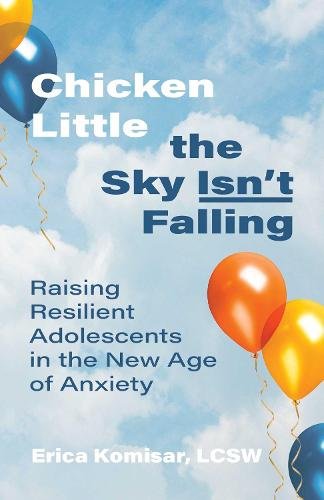‘Chicken Little, the Sky Isn’t Falling’ book review
Chicken Little, the Sky Isn’t Falling: Raising Resilient Adolescents in the New Age of Anxiety
Erica Komisar, 2021, ISBN 9780757324000
Committee member, Maria Lyons, reviews Erica Komisar’s latest book about nurturing resilient young people. Erica is the keynote speaker for our annual conference in November 2022.
As mothers who have chosen to be at home with our children in the first few years of their lives, we know how crucial these years are for their development. Many of us know this instinctively; the overwhelming desire to be with our babies and toddlers and their total dependency on us is proof enough of what they need. But, for better or worse, we live in a world which expects scientific evidence to justify every course of action. Fortunately, there is now plenty of evidence that consistent, loving attachment to a primary caregiver in the early years is the foundation for emotional security and mental health not just in childhood but the whole of a person’s life.
“The strongest ego is one that can yield when necessary…That is the definition of resilience.”
Writer and practising psychoanalyst Erica Komisar has done much to explain this body of evidence and promote the message that ‘mothering matters’, especially in that critical window of the first three years. In her new book, she turns her attention to the second most significant phase of child development. Adolescence, also a period of dramatic change and vulnerability, offers parents another precious opportunity to guide and support their children on the path to becoming secure, stable and above all resilient adults.
In Chicken Little, the Sky Isn’t Falling, Komisar describes what she terms ‘the new age of anxiety’, arguing that the many ‘internal stressors’ which are an ordinary part of the adolescent experience are being exacerbated by a multitude of newer ‘environmental stressors’. These environmental stressors include separation and premature independence as mothers return to work earlier and earlier, schooling which favours cognitive over social and emotional development, sensory overload and over-exposure to media and technology, and fractured communities which leads to disconnection and loneliness. That adolescents especially are suffering is evidenced by the increase in mental health disorders in that age group over the last two decades, among them depression, ADHD, anxiety and many forms of addiction.
Despite this bleak picture, Komisar’s message is ultimately optimistic, as her title suggests. The key to helping our children to navigate this stormy and challenging time, she argues, is to deepen our understanding of what they are going through. Knowing what is realistic to expect, and when not to expect too much in terms of emotional maturity, judgement, behaviour regulation and so on, can help to ensure our responses are both sensitive and proportionate. 'Parenting is a nuanced high-wire act of persuading your adolescent to see your perspective without obviously ramming it down their throat.' Because knowledge is power, she takes the reader on a journey through the main phases of ‘normal’ adolescence – physical, sexual, social-emotional and cognitive development – before looking in more depth at the most common mental health-related problems afflicting today’s youth. These include learning issues and social development disorders, eating disorders, substance addiction, bullying and social media.
For parents facing any of these problems with their adolescents, this book provides invaluable information, guidance and follow-up resources to help them through the process. It is peppered with anecdotes which bring the content alive and make it relatable. It would be wrong, however, to assume that this is a book to reach for only once our adolescents are already in trouble. Komisar’s message throughout is that being physically and emotionally present for our children is the best form of prevention. ‘You need to be there when the door into their private world swings open, and they’re ready to let you in. If you’re not, the door will close again.’ She stresses repeatedly how much our actions and attitudes really matter. ‘Who we are, what behaviours we model, and how we relate and care for our children impact them and their development more than any other factor.’
For those of us who might not have reached that stage yet, this book is a powerful reminder that we cannot ask more of our children than we ask of ourselves. The best preparation for the challenges to come is to cultivate our own self-awareness, openness, trust and willingness to learn and continually grow. If we want our children to become resilient, we must give them an example of what that looks like. ‘Your adolescent looks to you to be an adult and a parent. Our ability to live an examined life helps our children to live one as well.’
This book review was first printed in our Autumn 2022 Newsletter — available to all MAHM Members. Become a member to receive our biannual newsletter, reduced prices for events and other benefits!

